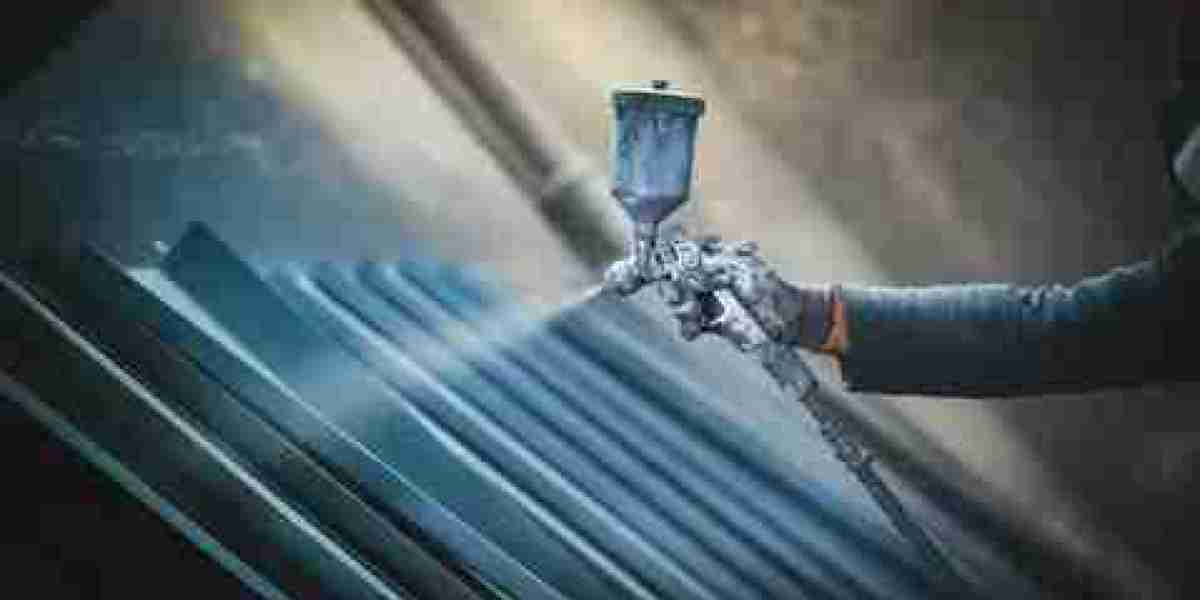The industrial coating market has evolved into a key sector within the manufacturing and construction industries, providing solutions that enhance the durability and longevity of various industrial assets. As industries strive for greater operational efficiency and sustainability, coatings have become an essential tool in reducing maintenance costs across a wide range of applications. These advanced coatings are not only designed to provide protection from external elements such as moisture, chemicals, and abrasion but also contribute to lowering maintenance expenses by extending the life of machinery, infrastructure, and equipment.
Market Intelligence: The Demand for Cost-Effective Solutions
The growing emphasis on reducing operational costs, combined with rising environmental concerns and stricter regulations, has driven the demand for more cost-effective maintenance solutions across industrial sectors. Maintenance is often one of the largest expenses for companies in industries such as manufacturing, oil and gas, construction, and transportation. As companies seek to optimize their operations, they are increasingly turning to industrial coatings as a means of reducing these costs.
Industrial coatings, by providing an additional layer of protection, prevent damage caused by corrosion, wear, and environmental stress, which can otherwise lead to costly repairs, downtime, and replacements. By investing in coatings that reduce the frequency of maintenance interventions, businesses can realize long-term savings and avoid unnecessary disruptions in operations. As awareness of these benefits spreads, the industrial coating market continues to grow, driven by the demand for maintenance-free or low-maintenance solutions in various sectors.
How Coatings Help in Reducing Maintenance Costs
- Corrosion Resistance and Longevity
Corrosion is one of the leading causes of equipment failure and deterioration in industrial settings. It occurs when metal surfaces are exposed to moisture, salt, chemicals, or extreme temperatures, leading to the breakdown of metal components. This results in the need for frequent repairs or even complete replacement of affected parts. Industrial coatings, such as epoxy and polyurethane, are specifically designed to protect metal surfaces from corrosion. By acting as a barrier between the surface and the corrosive elements, coatings prevent rust and degradation, significantly extending the lifespan of machinery, pipelines, and other infrastructure. - Abrasion Resistance
In industrial environments, equipment is often subjected to mechanical wear and tear from friction, impacts, and heavy use. This type of abrasion can degrade the performance of machinery, leading to more frequent maintenance needs and potential breakdowns. Coatings that offer abrasion resistance, such as ceramic or polyurea coatings, help mitigate this issue. These coatings protect surfaces from damage caused by friction and heavy usage, which results in a longer service life for industrial assets and reduces the need for costly repairs due to wear. - Reduced Cleaning and Maintenance Time
Another significant benefit of industrial coatings is their ability to reduce the amount of time spent on cleaning and maintaining equipment. Coatings with self-cleaning or anti-stick properties, such as those used in the food processing industry or on machinery in mining operations, make it easier to remove dirt, grime, and other contaminants. This reduces the need for frequent manual cleaning, which not only saves on labor costs but also prevents the build-up of materials that could damage equipment over time. - Thermal Insulation
Thermal coatings are used in industrial applications to protect equipment from extreme temperature fluctuations. These coatings help regulate the temperature of machinery, reducing the stress caused by heat expansion and contraction, which can lead to cracks and other damage. By preventing such damage, these coatings help maintain the integrity of equipment and reduce the likelihood of costly repairs related to thermal stress. This is particularly beneficial in industries such as energy, oil and gas, and manufacturing, where machinery is exposed to high temperatures regularly. - Prevention of Chemical Damage
In sectors such as chemical processing, agriculture, and food production, equipment is often exposed to aggressive chemicals that can lead to rapid degradation and frequent maintenance needs. Industrial coatings with chemical-resistant properties protect surfaces from these harsh substances, preventing corrosion and erosion. By acting as a shield against chemicals, these coatings not only protect the integrity of machinery but also prevent contamination and reduce the need for cleaning and maintenance due to chemical exposure.
The Growing Trend of Sustainable Coatings
In addition to reducing maintenance costs, there is a rising trend towards the development and use of environmentally friendly coatings. Sustainable coatings, which are low in volatile organic compounds (VOCs) and free from harmful chemicals, are gaining popularity in industrial applications. These coatings not only contribute to environmental sustainability by reducing harmful emissions but also align with the growing emphasis on green practices within industries.




